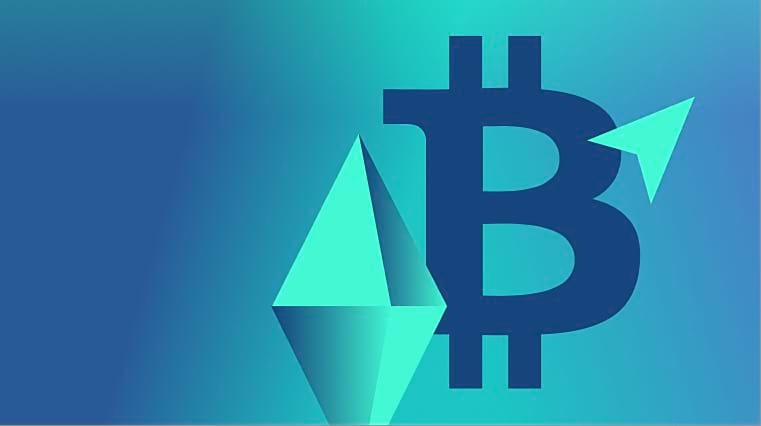
SEC throws the book at Binance and Coinbase
It's been an earth-shaking month for the digital asset landscape with the SEC at the epicentre of the tremors.
On 5 June, the SEC filed 13 charges against Binance and its founder Changpeng Zhao (CZ). The allegations involve mishandling customer funds, misleading investors, and failing to register under securities laws.
A day later, the SEC accused Coinbase of operating as an unregistered broker, exchange, and clearing agency since 2019. The regulator also deemed a range of crypto tokens to meet the criteria of the Howey Test, signifying their status as securities.
From the tokens said to be securities by the SEC, eight of them trade on both Coinbase and Binance in America. The regulator's hit list encompasses a diverse spectrum of digital assets that range from native units of blockchains to decentralised data storage and metaverse utility tokens.

In an interview on 6 June, SEC Chair Gary Gensler reinstated his unmoving position on digital assets, saying “we don't need any more digital currency” and that the only mediums of transaction worth using are fiat currencies that are already largely digital.
It was becoming increasingly apparent that the SEC had been building a case against Binance for years. The legal action against Coinbase did not come as the biggest of surprises either, given that the regulatory body had sent it a Wells notice back in March.
But the rapid succession in which both the lawsuits were brought out against two of the largest exchanges in the world, one day after the other, ignited mass volatility. Heightened trade volumes followed as market participants looked to readjust positions.
Against this backdrop, Coinbase (NASDAQ: COIN) stock has fallen by some 12% to $51 since 5 June. Almost $1 billion dollars of Bitcoin held by users on Binance has been withdrawn and the price of BNB has nosedived to its lowest point this year.

Binance's exchange balance has reduced by almost 43,000 BTC since 5 June as outflows continue unabated. Further pressure from the SEC has seen it file an order to freeze the assets of Binance's American arm. If the order is successful, American users would lose access to their deposits for an indefinite time.
The downward stress on Binance has forced it to delist a number of altcoin trading pairs and announce that it is severing all fiat onramps to Binance.US from 13 June. This will mean that Binance will no longer process USD deposits or withdrawals and transition to a crypto-only exchange in the U.S.
These moves have been a red flag for investors that view Binance and other crypto friendly platforms to be acquiescing to regulatory pressure and charges that many of their marketed tokens may indeed be securities.
Robinhood and eToro have both made strategic retreats by stating they will be ending support for many of the crypto tokens classed as securities by the SEC in the coming weeks.
The regulatory clampdown has led the price of most cryptocurrencies other than Bitcoin and Ethereum to plummet with coins like SOL, ADA, and MATIC losing 25% of their value since the start of June.
From the viewpoint of regulators, they've got the deer in their headlights and they're not changing the direction of the bulldozer. But a deeper look into the lawsuits reveals some holes in the legal ground they are traversing.
With respect to Coinbase, it would be remiss to gloss over the SEC's own failings when it has come to fulfilling its charter in the past. Coinbase has been trading assets claimed to be securities without a licence since 2019 according to the regulator. So, why did the SEC give its blessing for the company to IPO in 2021?
The SEC are inadvertently admitting they allowed an unregistered broker-dealer to be reviewed, IPO, and publicly trade for years without guidance or action.
What makes the state of play all the more awkward is that the U.S. government has been using Coinbase to sell Bitcoin seized from criminal enterprises for years. In March, the federal government offloaded 9,800 BTC for almost $216 million on Coinbase.
Coinbase and Binance both exchanges contend that the SEC's tactics are an example of regulation by enforcement and that they have tried to cooperate with the SEC on a number of occasions but the regulator has not been willing to engage in meaningful dialogue.
Both exchanges argue that the SEC's brute force approach is hurting American economic competitiveness and is leading industry innovators offshore where they can find more accommodating regulatory frameworks like in Europe.
There has been an outpour of support for Binance and Coinbase from partners and competitors alike as the industry stands united against the “war on crypto”. The uproar has extended to the halls of Congress where a pair of Republican House representatives have introduced the SEC Stabilization Act to restructure the SEC and remove Chairman Gensler.
If the legal quagmire that the SEC finds itself stuck in with Ripple Labs is anything to go by, Coinbase and Binance will be could be locked into a protracted conflict that may drag on for years.
So far, altcoins have been bled dry and industry participants have been rattled. As the old Kenyan proverb goes, when two elephants fight, it is the grass that suffers.
This is not the first – even if it may be the biggest – example of the SEC looking to bring the digital asset community to heel. But in some ways, this time seems different– the American crypto industry is speaking up in unison.
Institutions Join the Tokenisation Trail
In a new leap towards global blockchain adoption, Swift has announced that it is trialling the transfer of tokenised assets on Ethereum.
The move is a direct response to the escalating digitised demands of global finance with Swift aiming to bolster efficiency, transparency, and costs for customers by embracing distributed ledger technology.
The global interbank messaging system processes nearly $5 trillion in daily volume and is responsible for half of all cross-border transactions.
The initial phase will see Swift explore token transfers between the Ethereum mainnet, the Sepolia testnet, and a custom permissioned blockchain before piloting on other smart contract blockchains.
More than a dozen financial institutions – including Citi, BNY Mellon, and BNP Paribas – will participate in the initiative with Swift. Major banks are increasingly conscious of the investment cases tied to tokenised assets and are eager to bridge existing financial infrastructure with blockchains.
Tyrone Lobban, head of J.P. Morgan's Onyx digital assets platform, has said that “tokenisation is a killer app for traditional finance”. Onyx has processed almost $700 billion in transactions in short-term loans using a permissioned version of the Ethereum blockchain.
In January, Goldman Sachs' Digital Asset Platform (DAP) went live on the private blockchain Canton. The platform allows Goldman to issue, settle, and custody tokenised assets. The first institution to leverage this platform was the European Investment Bank (EIB) when it launched a €100 million two-year digital bond on it.
The tokenisation of securities is a compelling instrument in private markets that often wrestle with liquidity constraints. Tokenisation can involve the fractionalisation of illiquid assets into smaller units that can be traded more freely to enhance liquidity.
Tokenised securities are also typified by lower transaction fees and faster settlement times compared to assets offered by conventional brokers because of their reliance on smart contracts that remove the need for intermediaries.
While major banks are undertaking distinct asset tokenisation projects on mostly private blockchains for select clients, an emerging number of digital asset providers are issuing tokenised securities on public blockchains that are available round-the-clock.
2023 has been marked by exploding interest in tokenised public securities tracking financial instruments like bonds, equities, and ETFs. The market cap for tokenised public securities has ballooned to $240 million – a 115% increase from Q1.
The theoretical market size for tokenised securities is vast. For example, if BlackRock's five biggest ETFs were tokenised, it would mean that $650 billion worth of assets would be available on the blockchain.

In an annual investor letter from March, BlackRock CEO Larry Fink noted that the firm is exploring
the digital assets ecosystem, especially areas most relevant to our clients such as permissioned blockchains and tokenization of stocks and bonds.
Issuers like Ondo Finance, MatrixDock, and Maple Finance issue tokens as ERC-20 tokens on Ethereum that are fully collateralised by their underlying assets. Ondo products dominate the tokenised asset space with a market cap of $110 million that accounts for nearly 50% of the market share.

Ondo has issued more than one million units of tokenised bonds benchmarked to the iShares Short Treasury Bond ETF (NASDAQ: SHV). Meanwhile, providers like Swarm offer synthetic exposure to Apple stock while Backed tracks the iShares Core S&P 500 ETF (NASDAQ: CSPX).

The tokenisation of financial instruments offers a strong value proposition for institutional and retail market participants. Tokenised securities hold the potential to reshape global financial markets and institutions are racing to digitise legacy financial products.
Revival of the Metaverse
There has been renewed interest in the virtual reality space since Apple released its Vision Pro headset. This is the $2.9 trillion company's first major foray into the metaverse: a mixed reality headset that combines virtual reality (VR) and augmented reality (AR).
The physical specs of the Vision Pro are impressive: a dual-chip infrastructure, 4K lenses in each eye, and spatial audio means any room becomes like a personal movie theatre.
A recent survey by Paypal showed that an estimated 38 million people now spend $28 billion a year on metaverse gaming. Apple's augmented reality future could be the crossover device that brings the first 100 million users into the metaverse.
Its superior technology capabilities open a new entry point into virtual worlds that have so far been impeded by technology that is not yet fit for purpose. Last year, Meta launched its Quest Pro headset and Microsoft has its own HoloLens headset but they have both drawn criticism for lacking comfort, style and proficiency.
The efforts of blue chip tech companies to facilitate virtual immersion have cast the spotlight back on the metaverse industry at a time when companies participating within it have been benefiting from the AI stock boom.
This is because a number of firms building metaverse gateways also have a hand in AI. Nvidia is the best example of this, with the semiconductor giant making graphic processing units (GPUs) for both metaverse headsets and the supercomputers needed to power AI language models like ChatGPT.
ETC Group's metaverse ETF (LSE: METR) has reaped the reward of these background events and has outperformed most sectors this year. The ETF has risen 34% this year, with its gains almost triple the 13% achieved by the S&P 500 this year. METR has also bolted ahead of gold that has seen steady gains of roughly 6%.
Thematic indices like the S&P 500 Financials Index that represents banking stocks and the S&P Global Clean Energy Index that comprises companies partaking in green energy activities have also had contrasting performances to ETC Group's Metaverse ETF.

The constituents of METR are rebalanced on a quarterly basis and the investment vehicle provides exposure to 50 companies including Nvidia, Apple, and Meta. These companies have spearheaded gains for the ETF this year with their pivots toward AI.
Consequently, METR arguably doubles as an AI ETF by providing exposure to this year's zeitgeist.

Markets

The SEC's lawsuits against crypto exchanges and its unilateral verdict on which coins it deems securities sent the market crashing down.
Tokens classified as securities like Solana (SOL), Cardano (ADA), and Polygon (MATIC) were decimated, losing upwards of 25% of their value. MATIC in particular has now lost all of its YTD gains and is down 14% for the year.
Ethereum was not immune to market ruptures, despite not falling into the SEC's catch-all definition of securities. The Proof of Stake asset fell from $1,900 to $1,740 over the last fortnight.
Bitcoin dropped by 6.5% over the same period but the market cap dominance for the world's largest market cap has expanded to 49%. This is the highest it has been since April 2021 as investors dump altcoins and seek refuge in the resilience of Bitcoin.
Important information:
This article does not constitute investment advice, nor does it constitute an offer or solicitation to buy financial products. This article is for general informational purposes only, and there is no explicit or implicit assurance or guarantee regarding the fairness, accuracy, completeness, or correctness of this article or the opinions contained therein. It is advised not to rely on the fairness, accuracy, completeness, or correctness of this article or the opinions contained therein. Please note that this article is neither investment advice nor an offer or solicitation to acquire financial products or cryptocurrencies.
Before investing in crypto ETPs, potentional investors should consider the following:
Potential investors should seek independent advice and consider relevant information contained in the base prospectus and the final terms for the ETPs, especially the risk factors mentioned therein. The invested capital is at risk, and losses up to the amount invested are possible. The product is subject to inherent counterparty risk with respect to the issuer of the ETPs and may incur losses up to a total loss if the issuer fails to fulfill its contractual obligations. The legal structure of ETPs is equivalent to that of a debt security. ETPs are treated like other securities.


